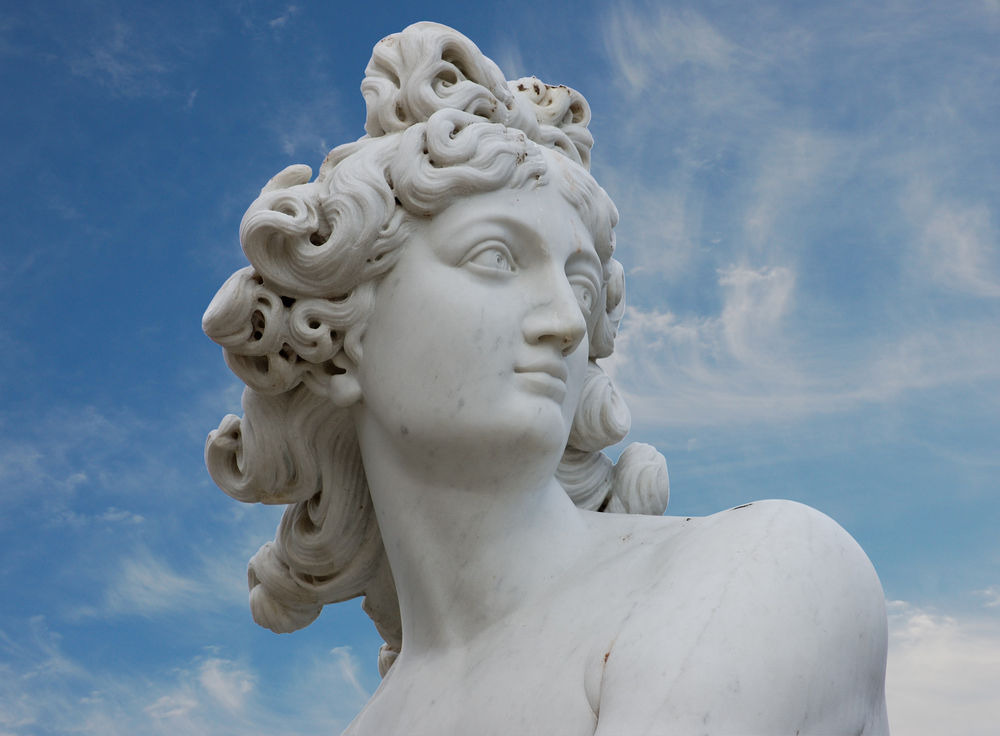Thisrnyear’s swimsuit issue lays bare all the contradictions of the #MeToo movement
This year’srnValentine’s Day, with its airs of romantic love and devotion, came during whatrnmay have been the climax of the confused #MeToo movement: a Sports Illustratedrnswimsuit issue without any actual swimsuits.
In the name ofrnempowerment, naked models in the February issue are wearing words of love andrnhuman dignity, written in black marker on their skin, instead of therntraditionally tiny bikinis. These words are meant to inspire titillated men tornlook past their skin to their personhood, an act that would require superhumanrnvirtue.
Our modeculture has done all it can to strip Valentine’s Day of meaning, pulling itrndown from its height as the commemoration of a Christian saint associated withrnromantic love to an opportunity to release movies about perverse sex.
St. Valentinernwould hardly be shocked, since he is said to have been martyred for secretlyrnmarrying Christian couples. Christian marriage, with its demands forrnpurity and continence, was a scandal and an obstacle to the pagans of his time,rnsteeped as they were in the base sensuality of the cult of Venus.
This kind ofrnmarriage is still a scandal to the post-moderns of our time, steeped in sexualrnliberation and pornography. Marriage — the permanent and mutuallyrnsacrificial union of equals — was and is the glorious reward for the romanticrnlover, and silliness to the one who simply lusts.
St. Valentinernwould not have been surprised by the models in the “swimsuit” issue, althoughrnhe would have been saddened. The pagan world was, like ours, soaked withrnsex, even without the help of the venereal pornography of the Internet.
And like ourrnmodern #MeToo women, pagan women also must have felt the indignity of beingrntreated solely as objects to satisfy lust. They could not have felt it anyrnmore strongly than the Sports Illustrated models who posed naked, rejectingrnsexual objectification by painting their skin with words that express therncomplexity and nobility of their persons, words like “natural”, “optimism” andrn“mother”. Their womanhood, thrilling and individual, inspires the romanticrnlove of St. Valentine, while their nakedness, exposed to strangers, is simplyrnan apparatus that produces sexual pleasure.
The tragedy, ofrncourse, is that the models, and the world along with them, believe that arnculture soaked in sex, which celebrates their prurient nakedness as empoweringrnand liberating, is one that could also read properly the signposts of theirrndignity written in marker on their skin. Impossible.
When thernChristian barriers of purity and dedication have been demolished in the name ofrn“liberation” and reduced to legalistic concepts of consent, then impersonalrnsexual impulse reigns supreme. By posing naked, the models are arousing thatrnimpulse in men who can only view these women in relation to their own desires.rnThe words on their bodies demonstrate their longing for the personalrnrecognition of the romantic lover, who wants the Beloved herself in all herrnspecificity, rather than the pleasures anyrnwoman can bring.
The “swimsuit”rnissue is a pictorial explanation of the dissatisfaction and unhappiness thatrnmar the lives of Western women today, who by historic standards enjoyrnunheard-of prosperity, health and freedom — a dissatisfaction expressed in thern#MeToo movement. It is no wonder women feel oppressed and abused, exposed asrnthey are from puberty through old age to callous treatment from men who viewrnthem solely as the apparatus of sexual pleasure.
Compounding thernproblem is the situation encapsulated in the Sports Illustrated “swimsuit”rnissue. Posing naked to titillate strange men is pure, sordid Venus, nornmatter how many signs of personhood you draw on your skin. This is notrnempowerment but slavery to the tyranny of sex, which occupies the space thatrnwholesome and dignifying romance — Valentine — should rightfully fill.
Really, it’s an ancient/modern tragedy. Thern#MeToo women, and especially the poor naked models in Sports Illustrated, arernlonging for Valentine in a world of pure Venus.
Dr. Grazie Pozo Christie grew up in Guadalajara, Mexico, coming to the U.S. at the age of 11. She has written for USA TODAY, National Review, The Washington Post and The New York Times, and has appeared on CNN, Telemundo, Fox News and EWTN. She practices radiology in the Miami area, where she lives with her husband and five children.

